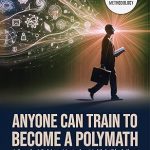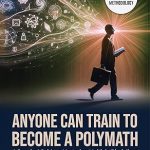The Power of Divergent Thinking: Creativity, ADHD, and the Genius of Distraction Focus and discipline are celebrated as the cornerstones of productivity. But what if your greatest breakthroughs don’t come from laser focus, but from distraction, curiosity, and chaos? For many, divergent thinking—exploring many ideas instead of narrowing in on one—is not just a quirk, …
KeyToStudy Offers:
Memory, Speedreading, and Analysis
KeyToStudy Overview:
Memory, Speedreading, and Analysis
ProlificFocus Overview:
Productivity, Motivation, and Projects
ProlificFocus Offers:
Productivity, Motivation, and Projects
Reading Your Daily Horoscope: Understanding What’s in Store for You
Diving into the world of astrology can be both fascinating and enlightening, offering insights into personal traits, aspirations, and challenges. The allure of uncovering what each day might hold through a daily horoscope continues to captivate the minds of millions. By interpreting the cosmic dialogue written in the stars, daily horoscopes give a glimpse of …
Continue reading “Reading Your Daily Horoscope: Understanding What’s in Store for You”
The Polymath Career Path: A Roadmap to Lifelong Versatility
Success today isn’t tied to a single profession—it’s tied to how well you adapt, combine knowledge, and grow across fields. The Polymath Career Path shows how curiosity and versatility can guide you to a fulfilling and resilient professional journey. Instead of locking into one identity, polymaths craft careers fueled by continuous learning, purposeful exploration, and …
Continue reading “The Polymath Career Path: A Roadmap to Lifelong Versatility”
How to Read Your Human Design Chart: A Step-By-Step Approach
The Human Design system merges ancient teachings and modern science to present a unique blueprint of one’s nature, much like a genetic map. At first glance, your human design chart may appear complex, but with understanding, it provides profound insights into your personality and potential. Grasping its symbols and connections becomes a journey of self-discovery. Learning to …
Continue reading “How to Read Your Human Design Chart: A Step-By-Step Approach”
Beyond Policy: The Real Path to Career Growth in Education
What really makes someone a leader in education? Is it how many reports they’ve written? Or how many acronyms can they rattle off in a meeting? Most people think career advancement in higher ed is about mastering policy. And yes, understanding the fine print matters. But the truth is, it’s rarely the person with the …
Continue reading “Beyond Policy: The Real Path to Career Growth in Education”
Training the Mind to Think Like a Polymath
The polymath mindset begins with how we think. Unlike specialists who dive deep into one area, polymaths train their minds to move across different domains. They think flexibly, often combining insights from unrelated fields to generate fresh ideas. This way of thinking is not limited to the gifted—it’s a process anyone can learn. Polymathic thinkers …
Continue reading “Training the Mind to Think Like a Polymath”
Why Diverse Ideas Make Leaders Stronger
It’s easy to surround yourself with people who think like you—it feels safe, but it limits growth. Leadership works the same way: relying on familiar perspectives creates echo chambers, while today’s fast-changing world demands fresh, even uncomfortable, ideas to spark solutions. The leaders who thrive are those who listen to a wide range of voices, …
Why Engineering Is the Most Reliable Career in a Crisis
What job actually survives a crisis? Not just survives, but stays relevant, in demand, and indispensable when things get unpredictable? We often talk about “job security,” but for many professions, that’s become a fragile concept. Industries pivot, economies dip, and AI doesn’t wait for annual reviews. But in the middle of all that change—when systems …
Continue reading “Why Engineering Is the Most Reliable Career in a Crisis”
Raising a Polymath: Nurturing Curiosity and Creativity in Every Child
Becoming a polymath—someone skilled across many different fields—is not reserved for a lucky few. Anyone can develop this wide-ranging intelligence by fostering curiosity, creativity, and a love for learning from an early age. Raising a polymath means encouraging hands-on exploration, seeing things from multiple perspectives, and learning through play instead of rigid teaching methods. This …
Continue reading “Raising a Polymath: Nurturing Curiosity and Creativity in Every Child”
How Do Polymaths Build Resilience Through Challenges?
Becoming a polymath is not about being born with extraordinary talent; it is about consciously shaping your identity and mindset to embrace growth across multiple fields. The journey starts with understanding who you are and choosing values that guide your development. When you allow purpose to emerge naturally instead of forcing it, your life story …
Continue reading “How Do Polymaths Build Resilience Through Challenges?”









